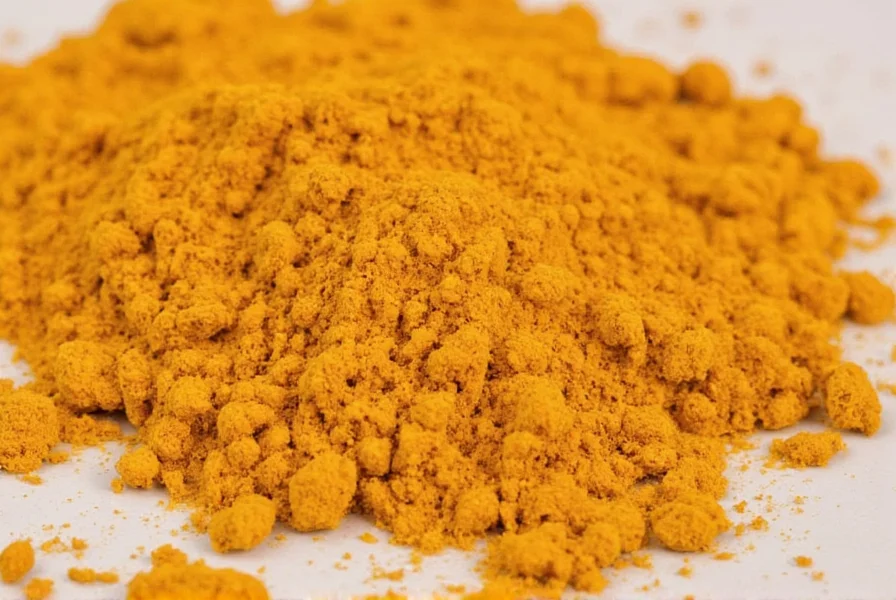The recommended daily turmeric dosage varies by form and purpose. For culinary turmeric powder, 1-3 grams (approximately 1/2 to 1.5 teaspoons) daily is generally considered safe. For standardized curcumin supplements, research shows 500-2,000 mg per day provides health benefits while remaining within safe limits. The World Health Organization suggests an acceptable daily intake of 0-3 mg of curcumin per kilogram of body weight. Always consult your healthcare provider before starting turmeric supplementation, especially if you have medical conditions or take medications.
Understanding the proper turmeric dosage per day is essential for safely harnessing its potential health benefits. Turmeric, particularly its active compound curcumin, has gained significant attention for its anti-inflammatory and antioxidant properties. However, determining the right amount requires understanding the differences between culinary turmeric and concentrated supplements, as well as individual health factors that affect optimal intake.
Understanding Turmeric Forms and Their Potency
Not all turmeric products deliver the same amount of active compounds. This distinction is critical when determining appropriate daily turmeric consumption guidelines.
| Form | Curcumin Content | Typical Daily Dosage | Best For |
|---|---|---|---|
| Culinary turmeric powder | 2-8% curcumin | 1-3 grams (1/2-1.5 tsp) | General cooking, mild health benefits |
| Standardized curcumin extract | 95% curcumin | 500-1,500 mg | Therapeutic benefits, specific conditions |
| Enhanced absorption formulas | Varies (with piperine or lipids) | 250-500 mg | Maximum bioavailability |
General Daily Turmeric Recommendations
For healthy adults seeking general wellness benefits, these standard turmeric intake amounts provide a safe starting point:
- Culinary use: Incorporate 1-3 grams (approximately 1/2 to 1.5 teaspoons) of turmeric powder into daily cooking. This amount provides enough curcumin for mild anti-inflammatory effects without risk of side effects.
- Supplemental use: Most clinical studies showing significant health benefits use 500-2,000 mg of standardized curcumin extract daily, typically divided into two doses.
- Enhanced formulations: Products containing black pepper extract (piperine) or formulated for better absorption may require lower doses (250-500 mg) to achieve similar effects.

Dosage Guidelines for Specific Health Concerns
Research suggests different turmeric daily intake recommendations may be appropriate for specific health conditions:
- Joint inflammation and arthritis: Studies show 1,000 mg of curcumin daily significantly reduces pain and improves function. Some research indicates combining with 5-10 mg of piperine enhances absorption by up to 2,000%.
- Metabolic health support: For blood sugar management, research suggests 800 mg of curcumin daily may improve insulin sensitivity.
- General antioxidant support: 500 mg of curcumin daily provides substantial antioxidant protection.
It's important to note that these therapeutic turmeric dosage levels should be discussed with a healthcare provider, especially if you have existing health conditions or take medications.
Safety Considerations and Maximum Limits
While turmeric is generally safe at culinary doses, higher supplemental amounts require caution. Understanding safe turmeric consumption limits is crucial:
- The European Food Safety Authority determined that up to 180 mg of curcumin daily is safe for adults.
- The World Health Organization suggests an acceptable daily intake of 0-3 mg of curcumin per kilogram of body weight.
- Consuming more than 8 grams of turmeric powder daily may cause gastrointestinal discomfort.
- High doses may interact with blood thinners, diabetes medications, and certain chemotherapy drugs.
Common side effects at higher doses include digestive upset, nausea, and diarrhea. If you experience these symptoms, reduce your intake or discontinue use.
Maximizing Turmeric Absorption
Curcumin has notoriously poor bioavailability. Implementing these strategies can significantly improve your effective turmeric dosage:
- Combine with black pepper: Just 20 mg of piperine (from black pepper) can increase curcumin absorption by up to 2,000%.
- Take with healthy fats: Curcumin is fat-soluble, so consuming it with avocado, olive oil, or other healthy fats improves absorption.
- Heat enhances solubility: Cooking turmeric in warm dishes increases its solubility and bioavailability.
- Consider enhanced formulations: Look for supplements containing phospholipids or other absorption-boosting technologies.

Special Population Considerations
Certain groups require special attention when determining appropriate turmeric daily amounts:
- Pregnant and breastfeeding women: Culinary amounts are generally considered safe, but therapeutic supplementation should be avoided without medical supervision.
- Children: There's limited research on turmeric supplementation for children. Culinary use is safe, but supplements should only be given under pediatric guidance.
- Individuals with gallbladder issues: Turmeric may stimulate bile production, potentially worsening gallstones or bile duct obstruction.
- Those scheduled for surgery: Discontinue turmeric supplements at least two weeks before surgery due to potential blood-thinning effects.
When to Consult a Healthcare Professional
Before starting any new supplement regimen, consider consulting a healthcare provider if you:
- Take blood thinners, diabetes medications, or certain antidepressants
- Have a history of kidney stones (turmeric contains oxalates)
- Have iron deficiency (curcumin may interfere with iron absorption)
- Experience persistent digestive issues
- Are preparing for surgery
Your healthcare provider can help determine the most appropriate personalized turmeric dosage recommendations based on your health status, medications, and goals.
Conclusion
Finding the right turmeric dosage per day requires balancing potential benefits with safety considerations. For general wellness, culinary use of 1-3 grams daily provides mild benefits with minimal risk. For therapeutic purposes, standardized curcumin supplements in the 500-2,000 mg range, preferably with absorption enhancers, offer more significant effects. Always prioritize quality products, consider your individual health factors, and consult with a healthcare professional when using turmeric for specific health concerns. Remember that consistency matters more than extremely high doses—regular moderate intake delivers sustainable benefits without the risk of side effects.
Frequently Asked Questions
What is the maximum safe daily turmeric dosage?
The maximum safe daily turmeric dosage depends on the form. For culinary turmeric powder, up to 8 grams daily is generally safe for most adults, though 1-3 grams is recommended for regular use. For standardized curcumin supplements, research suggests 2,000 mg daily is the upper limit for most people, with the European Food Safety Authority determining 180 mg of curcumin as a safe daily amount. Higher doses may cause gastrointestinal issues and interact with certain medications.
How much turmeric should I take for inflammation?
For inflammation management, research shows that 1,000 mg of curcumin daily provides significant anti-inflammatory effects. This typically requires 3-4 grams of turmeric powder or a standardized curcumin supplement. For best results, choose a formula with black pepper extract (piperine) to enhance absorption, as curcumin alone has poor bioavailability. Consistent daily use for 4-8 weeks typically yields the best results for chronic inflammation.
Can I take turmeric every day long-term?
Yes, culinary amounts of turmeric (1-3 grams daily) are generally considered safe for long-term daily use. For curcumin supplements, studies show that doses up to 1,500 mg daily can be safely taken for up to 6 months. For longer-term use of supplements, consult with a healthcare provider to monitor for potential side effects and ensure it doesn't interact with any medications you may be taking. Regular breaks (such as 2 weeks off after 3 months of use) may be beneficial for some individuals.
When is the best time to take turmeric supplements?
The best time to take turmeric supplements is with meals, preferably those containing healthy fats to enhance absorption. Dividing the daily dose (for example, taking 500 mg twice daily rather than 1,000 mg once) may provide more consistent blood levels of curcumin. If taking turmeric for joint pain, consider taking it in the evening, as inflammation often increases overnight. For general wellness, taking it with your largest meal of the day provides optimal absorption.
How long does it take for turmeric to work?
The time it takes for turmeric to produce noticeable effects varies by purpose and individual. For acute inflammation or pain relief, some people report improvements within 24-48 hours. For chronic conditions like arthritis, it typically takes 4-8 weeks of consistent daily use to notice significant benefits. General wellness effects may take 2-4 weeks to become apparent. The effectiveness depends on the dosage, formulation (whether it includes absorption enhancers), and individual metabolism. Consistent daily use is more important than occasional high doses.











 浙公网安备
33010002000092号
浙公网安备
33010002000092号 浙B2-20120091-4
浙B2-20120091-4